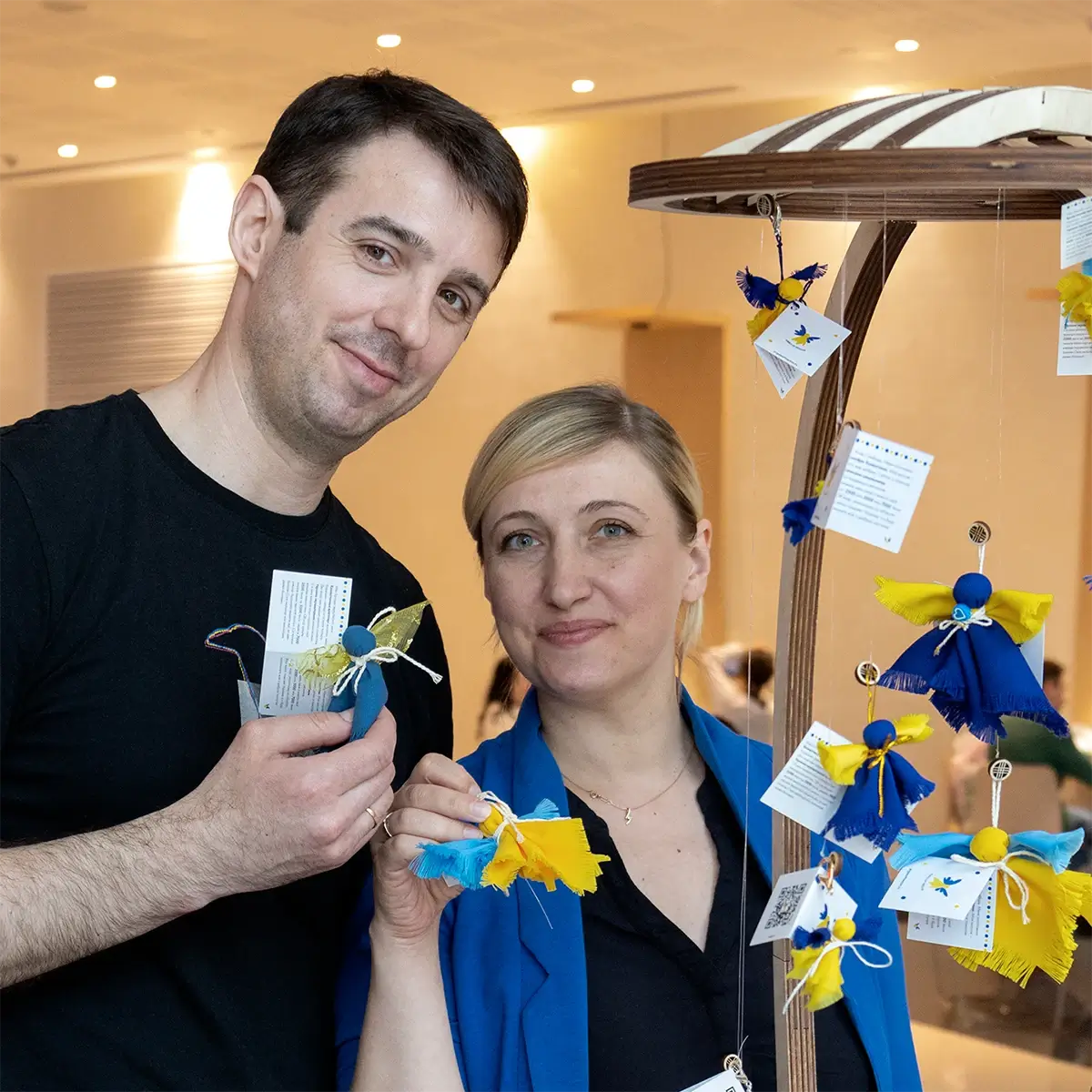The way Kazakh people are very helpful. That’s really true. I see it at fairs, I hear so many words of support. When people find out that I myself am from Ukraine, they say: “Hang in there!”. That’s very nice. It is so inspiring!
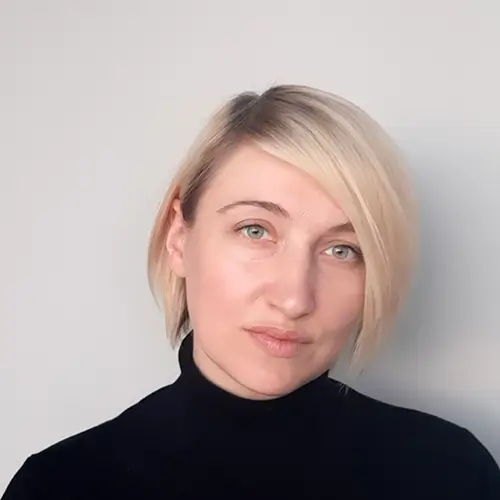
Kristina
I was surprised by the responsiveness of the Kazakhs, their understanding and willingness to help. And secondly, for me, as a Russian person it was important to see the response of Russians. When they approach… I don’t even know how to describe it. A person comes up, he realises that he is to blame — or rather, he bears some of the blame [for what is happening in Ukraine].
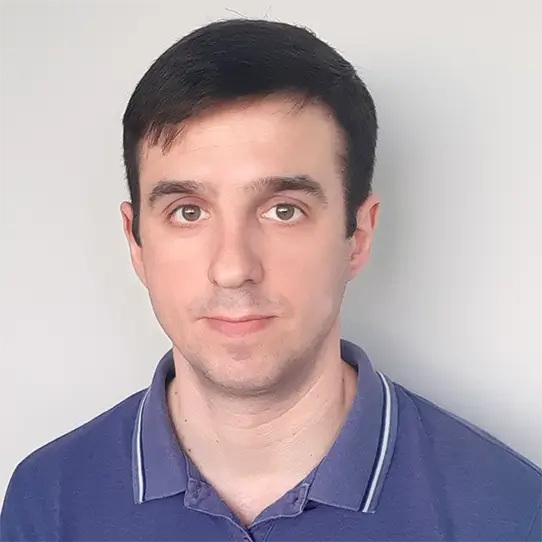
Viacheslav
— Hello, please tell us about yourself: what did you do in Russia and how did you end up in Kazakhstan?
Viacheslav: In Moscow, I worked as an electric train driver. I came to Kazakhstan with my wife at the end of September 2022, like many [Russians]. The reasons, I think, are known to everyone. We first came to Uralsk, stayed there for two weeks, and thought about what to do next. Then we decided to go to Astana, the capital of Kazakhstan — there are more embassies there — and decide on our further actions there. We came here, walked around the city, met volunteers, and learned about the “Angels of Freedom” project from them.
— Why did you become interested in the project? Why was it important for you to help it?
Kristina: I think it was important to help not so much the project itself, but to help Ukraine. I am from Ukraine, my husband is from Russia. When the war started, of course it was a shock, a tragedy for us. And in Russia, it is impossible to do anything to somehow help the people of Ukraine. And when we came here, we looked for any way to express our support. In addition to “Angels of Freedom”, I am involved in another project, we sell souvenirs.
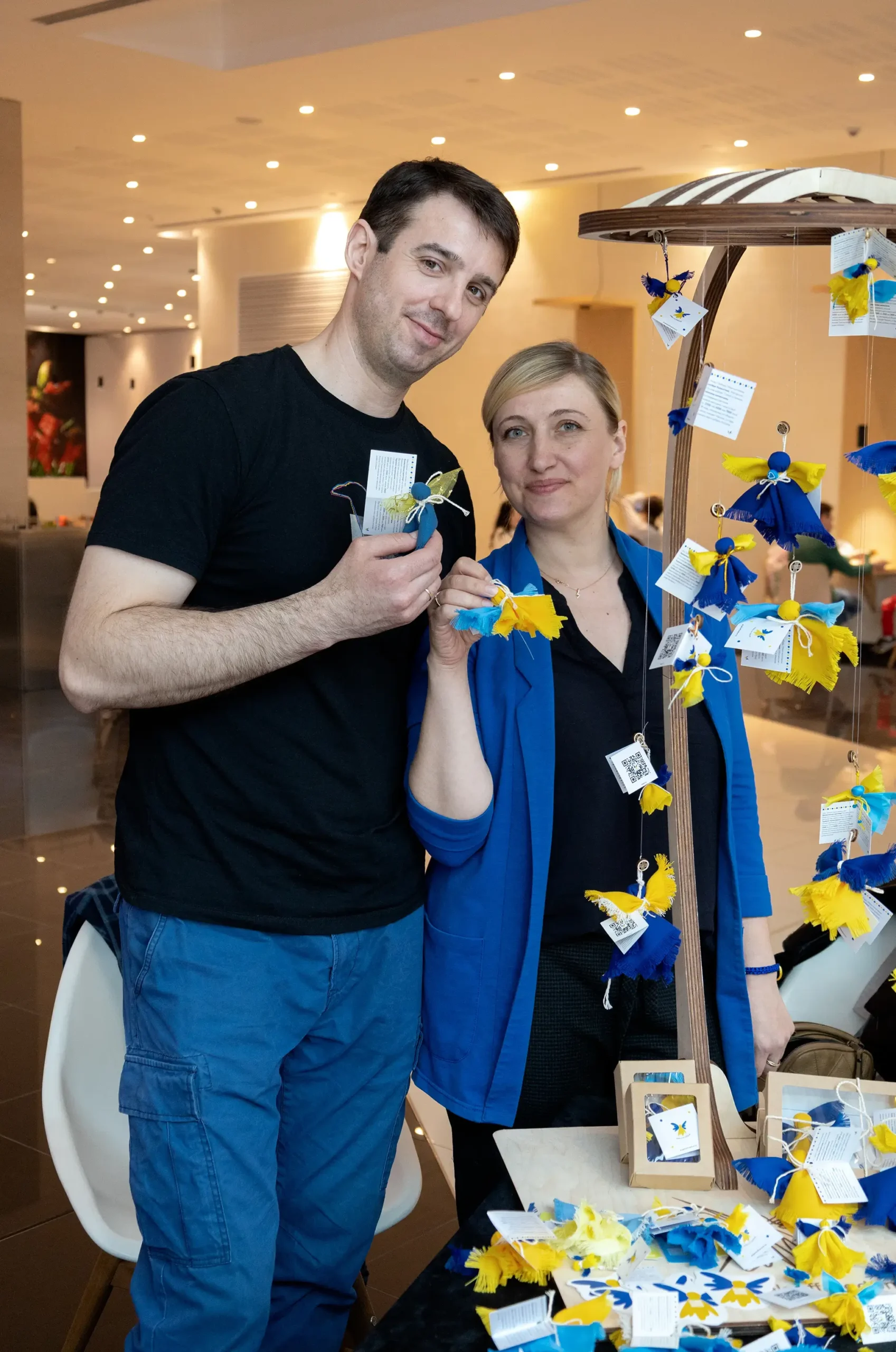
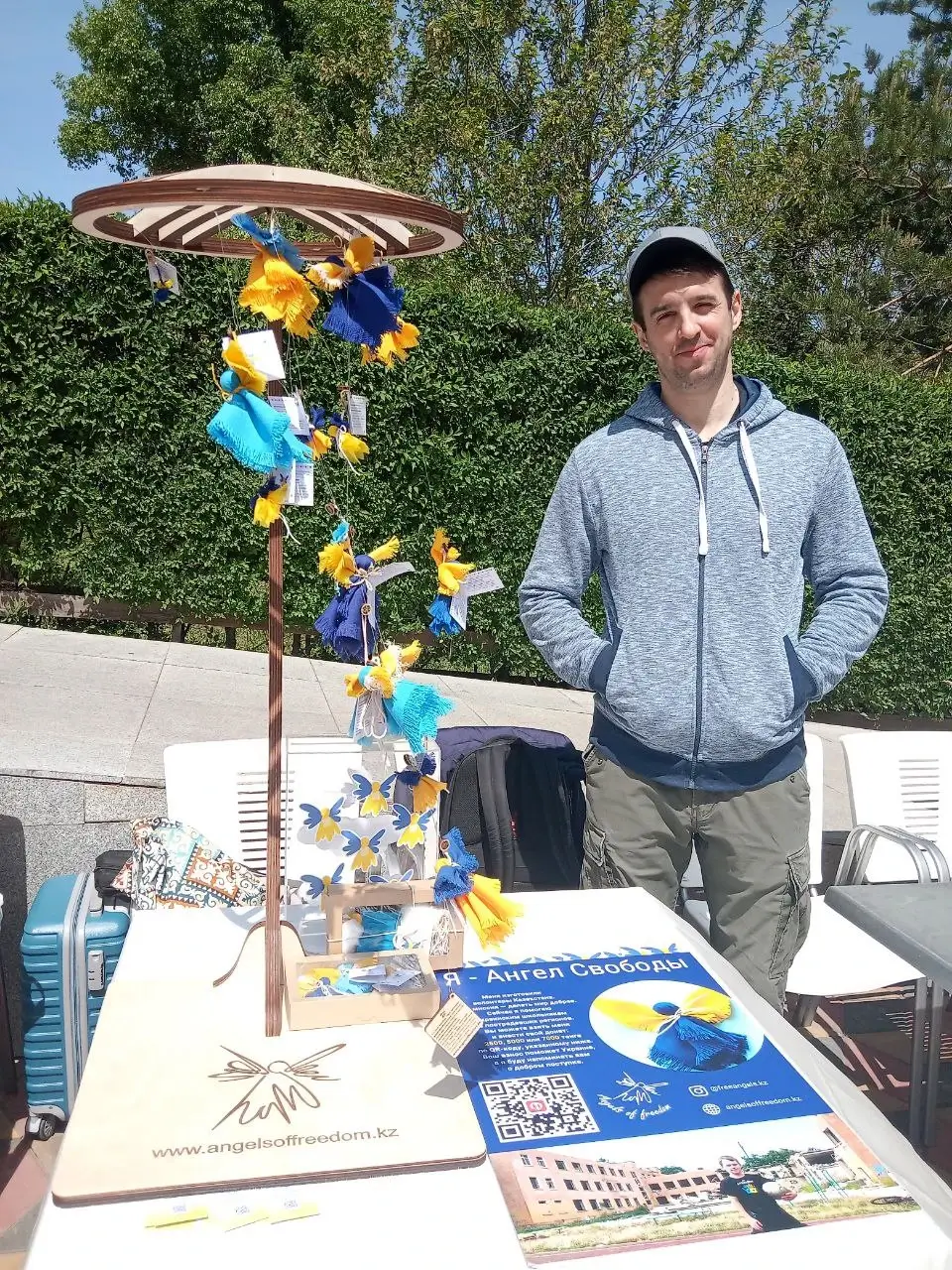
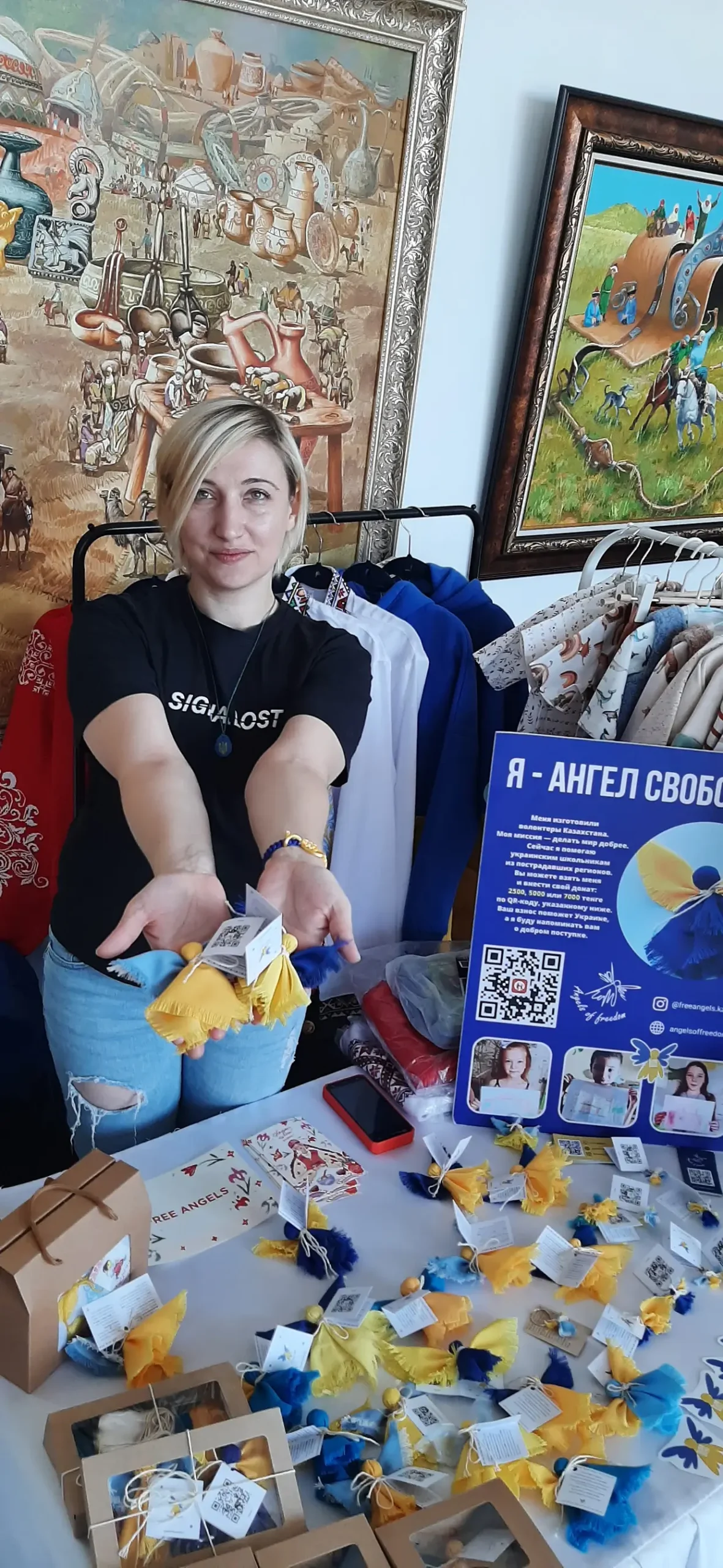
— Kristina, how long have you lived in Russia?
Kristina: I have been in Russia since 2006. I came to work, then I went to university, friends appeared, and my whole life has been there. Although I have Ukrainian citizenship, I did not change it. Then I met Viacheslav, we got married and planned to live in Moscow. Although we saw how every year the political situation in the country became more and more complicated: any dissent was oppressed, human and civil rights were violated… well, I won’t tell you what life is like there now…
— What do you do now?
Kristina: I am a tourism manager. It so happened that I became one here in Kazakhstan (laughs). Basically, my education is “Service. Tourism”. But it so happened that before coming to Kazakhstan I did not work in my specialty. The most interesting thing is that here I am engaged in domestic tourism. Now I am studying Kazakhstan, its sights, culture and customs.
It is encouraging that people of different nationalities, with different views on some issues can sit at the same table and find common interests. They sit, communicate and there are no conflicts at all. Because they are united by one idea — peace.
— Did the events of February the 24th come as a surprise to you, or did you feel that everything was coming to this?
Kristina: I had a premonition of danger somewhere from New Year’s Eve, from the way the situation escalated. But, like many people, I was sure that the conflict would erupt in the east.
Viacheslav: That is, everyone thought that Russia would introduce troops into Donbass, into the territories already occupied since 2014, and that would be the end of it.
Kristina: Yes, of course, no one expected a full-scale invasion.
— Do you communicate with your relatives from Ukraine now?
Kristina: Yes. I have my parents, my brother and sister, their families, friends, relatives there.
— How were your relations with them after the war? Were there any conflicts?
Kristina: It all depends on how a person who is in Russia behaved after the war started. We have maintained close, good relations, as there were no disagreements about the causes and perpetrators of the war.
Viacheslav: There can be no conflicts when for a person black is black and white is white.
Kristina: We have many friends in Ukraine, with whom we still communicate. There are a few acquaintances who cut off relations. Well, there are one or two of them. But we didn’t talk to them much anyway. And after the war, they stopped answering at all. I understand that they may have their own reasons.
Participation in the project is an opportunity to help. We are human beings. And humans must help each other.
— What are your plans for the future?
Viacheslav: From the looks of it, the war will go on for a long time. 2024 for sure. Naturally, we cannot return to Russia under the existing regime.
Kristina: There are no plans as such. We have been living in such a reality since February 24, when the background of all our current life is always the war.
Viacheslav: Constantly in the news, constantly on the phone. My only wish is that when everything is over, I will remove myself from all my Telegram channels so that I don’t see or read anything. Honestly, I don’t want to live with this news anymore. You get up in the morning — news, you fall asleep with them.
Kristina: And it’s impossible to distract yourself because your relatives are there. And they have constant bombings, air raids, and periodically some bombs land nearby. The first time when we called and saw relatives in the basement, it was a horror… (voice breaks).
— What do you do in the “Angels of Freedom” project?
Viacheslav: I am a simple volunteer: I participate in fairs, sometimes in tolokas. I do it less often now, because I am physically busy with work. And I helped my wife with the second project. Fairs are usually held on weekends, so I always try to participate in them.
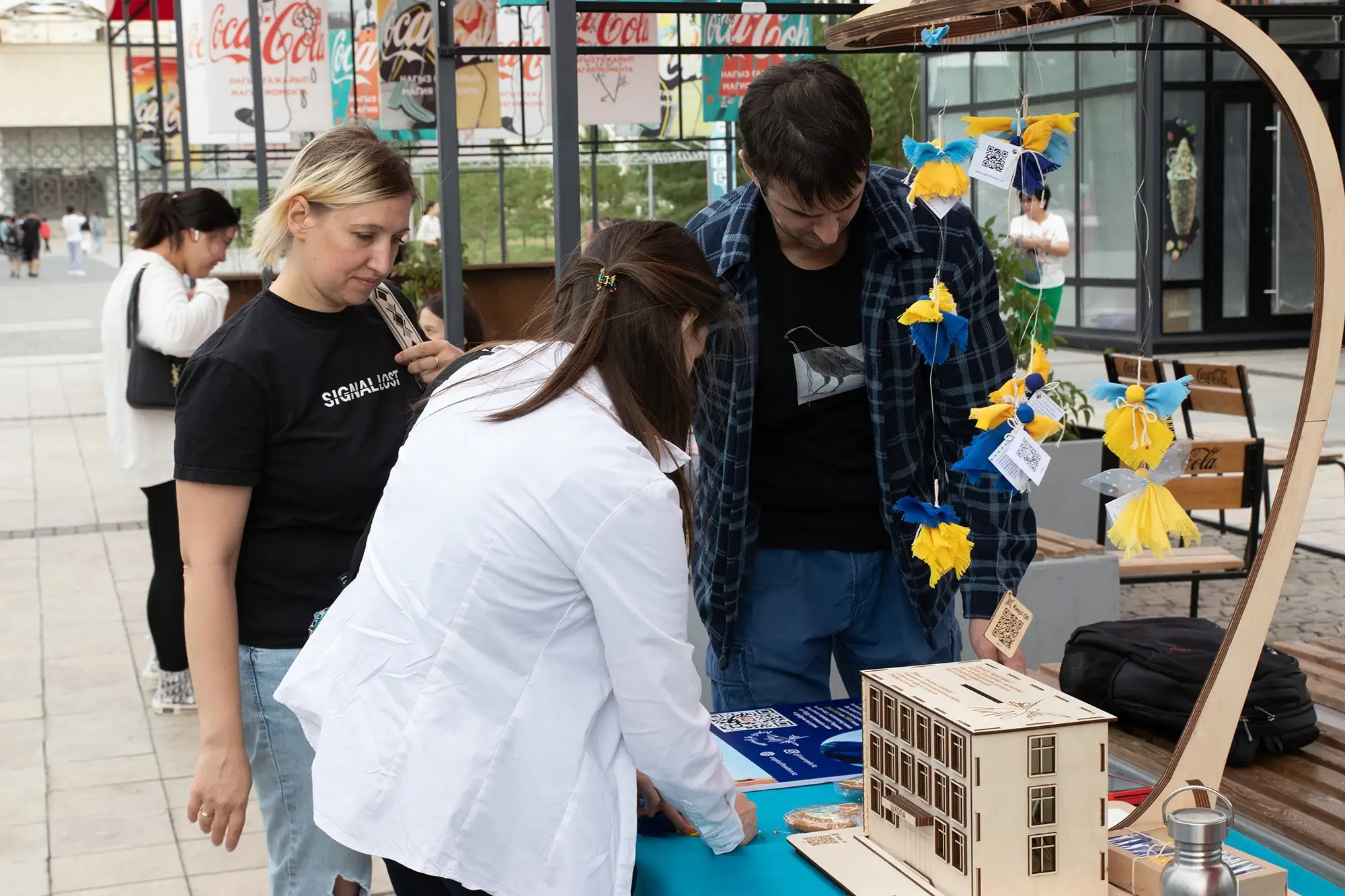
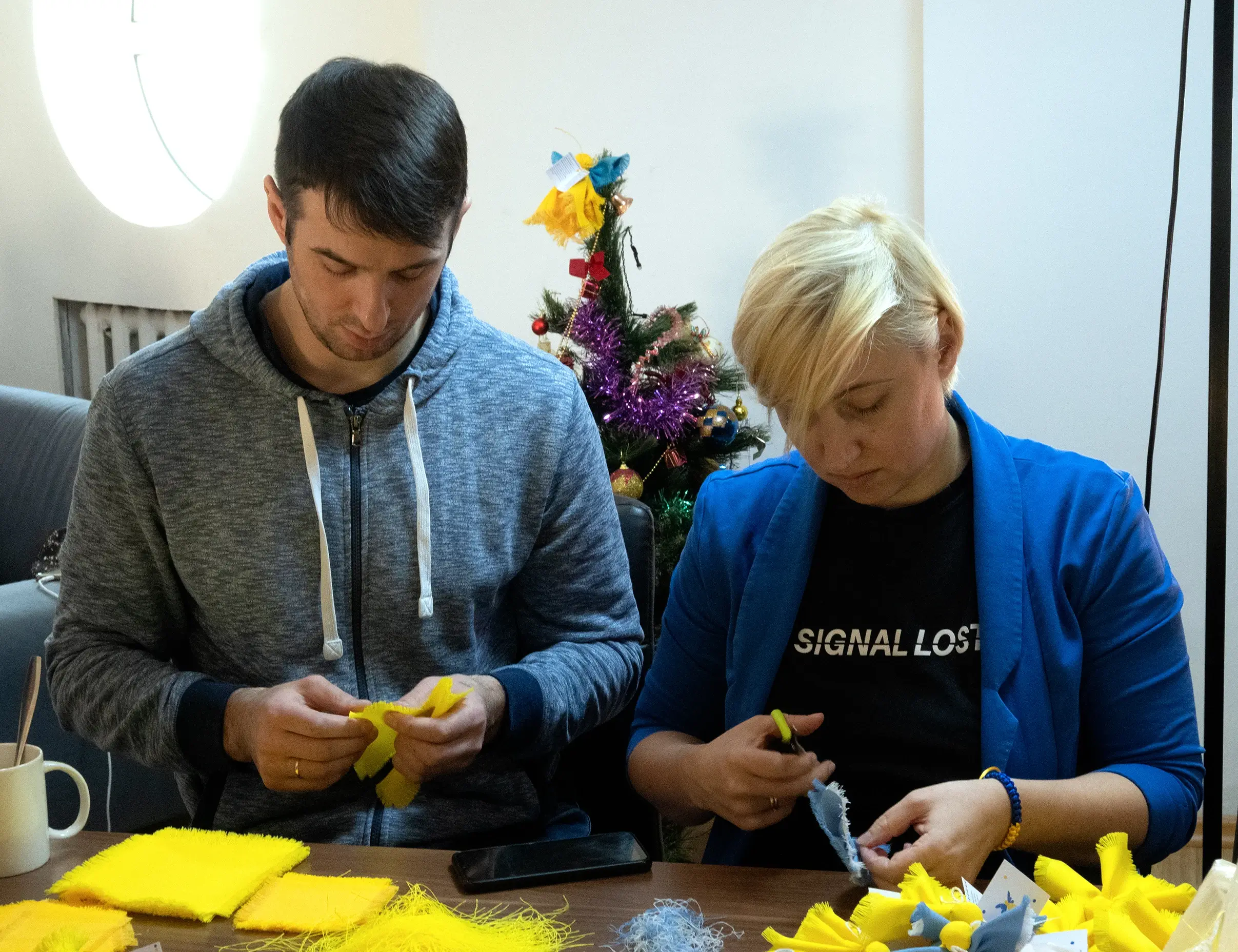
— Was your first fair together with Kristina? What were your first impressions of the fair?
Viacheslav: Yes, we went together with my wife. At that time there was a very big influx of Russians. In fact, I felt very great support from those who came here after the announcement of mobilisation. There were a lot of donations. It was nice to see that there were quite a few adequate people among them.
— What were the most memorable moments during your participation in the fairs?
Viacheslav: You know, I was surprised by the responsiveness of the Kazakhs, their understanding and willingness to help. And secondly, for me, as a Russian person it was important to see the response of Russians. When they approach… I don’t even know how to describe it. A person comes up, he realises that he is to blame — or rather, he bears some of the blame [for what is happening in Ukraine]. And I remember how one guy came up and started donating: he threw in one bill, the second, the third. We say: “Thank you, thank you!”. And he says: “You do not need to thank me, I’m from Russia.” That was very memorable. Even in the look of the [emigrated] Russians, in their behaviour, you can see that they are embarrassed, ashamed of what their country is doing. And even somehow you try to cheer them up by saying, “I am also from Russia, and we are helping as much as we can”.
— Have you encountered any negativity?
Viacheslav: I have encountered some. But the positive emotions from support and participation override any negativity.
Kristina: Not that the negativity is open and frank. There are some statements in our address, expressions of dissatisfaction with our activities and the fact that we support Ukraine.
— I think you have heard similar things in Russia before…
Kristina: When we were in Russia, we stopped communicating with almost everyone around us because we had a difference of opinion on this issue. And it felt like you were living in the realm of the dead. You can’t talk to anyone, you can’t say anything, because you realise that you will get the reaction that you expect, but that you don’t want to hear. And when we came here and started to communicate with other guys from Kazakhstan and Russia, there was a little hope that not everything was lost.
— And Kristina, have you had any moments in your volunteer experience that have impressed you?
Kristina: The way Kazakh people are very helpful. That’s really true. I see it at fairs, I hear so many words of support. When people find out that I myself am from Ukraine, they say: “Hang in there!”. That’s very nice. It is so inspiring! It gives me strength to move on. Regarding people who are memorable… At one of the very first fairs there was a man who had a very small income. He kept walking around us in circles, coming, asking, leaving again, and then he came and donated a small amount of money. He could see that it was important for him to do it.
Viacheslav: He gave a small amount, but it was significant for him.
Kristina: It was very touching.
— Is it hard to participate in the fairs? Some volunteers find it difficult because they have never sold anything before.
Kristina: Here we don’t sell anything, we offer people to help the children of Ukraine and in gratitude we give them an angel. That’s the beauty of the project. I think selling is even easier than this project. Here you need to talk to a person and convey the idea.
Viacheslav: To tell them what we are, what we do and why. Communication is of primary importance here.
Kristina: At first, you may feel a little stiff. But again, it goes away very quickly.
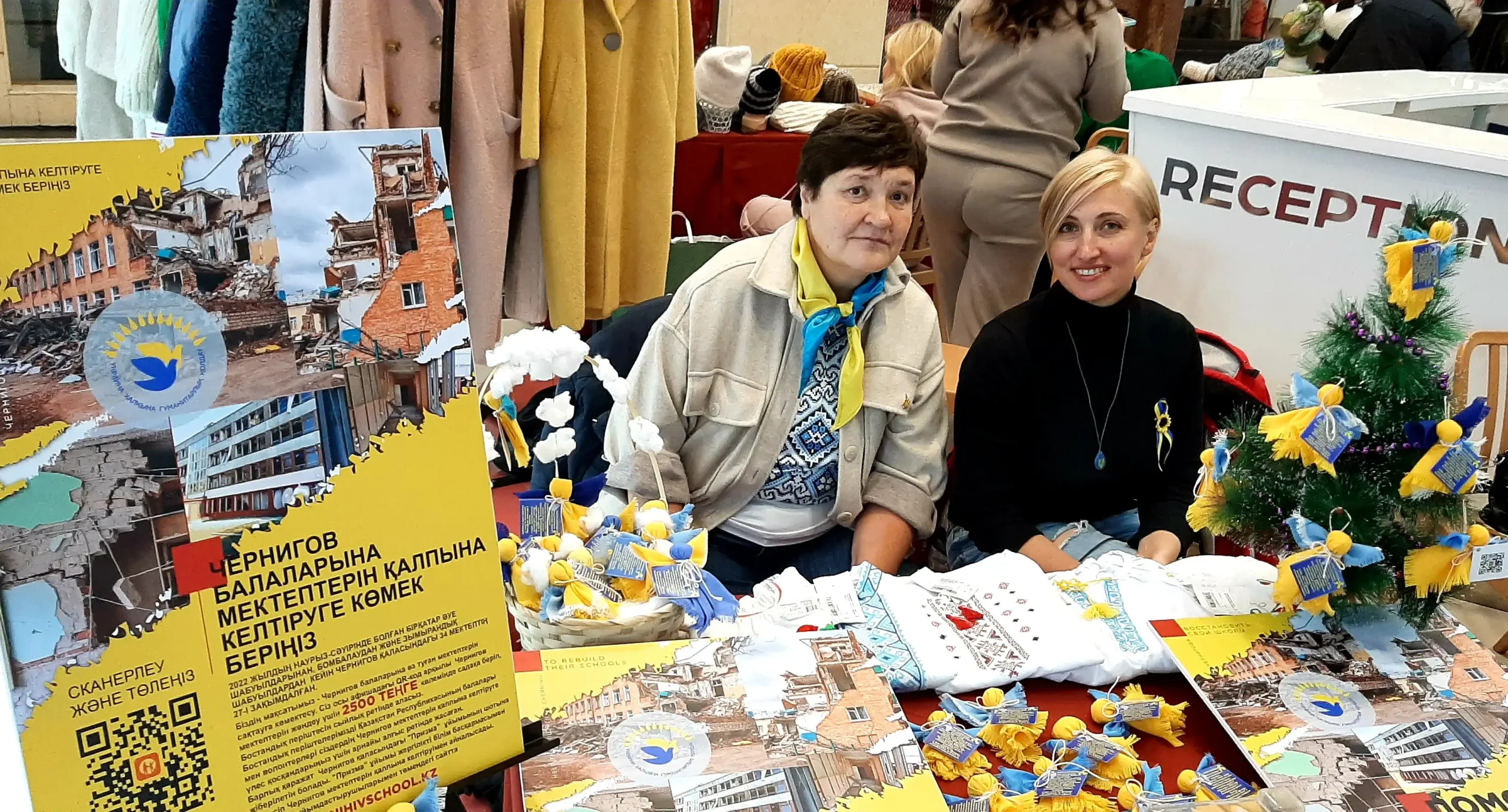
— What kind of questions do people ask? Or how do you start a conversation?
Kristina: Usually people get curious when they see our tables. Because the “angels” themselves look extremely unusual. When you walk through a fair, you expect to see something different — some costume jewellery, something else they usually sell. And when you see something unusual, you wonder what it is. People come up, they are interested, and here we enter into a dialog.
— How do you approach the topic of destroyed Ukrainian schools? This is a rather painful and terrible topic.
Viacheslav: In general, it is not difficult to explain what war is. It is always grief, death and destruction. We start the dialogue with the fact that we are a volunteer project, we help to restore schools in Ukraine after bombings, and we equip them with bomb shelters. We have a small banner where you can read more about this.
Kristina: Many people in Kazakhstan are following the situation. They don’t need an explanation about the tragedy in Ukraine.
“Angels of Freedom” is a good thing that everyone can do now. Here and now.
— You said that you participated in tolokas. Ukrainians, Russians, Kazakhs, Belarusians, Crimean Tatars… How did you feel in this community? Did it seem strange to you or, on the contrary, quite organic?
Viacheslav: It did not seem strange. On the contrary, it is encouraging that people of different nationalities, with different views on some issues can sit at the same table and find common interests. They sit, communicate and there are no conflicts at all. Because they are united by one idea — peace. This is very uniting.
— How long have you been in the project?
Viacheslav: Almost a year.
— During this time you have learned something new about yourself or others — Russians, Ukrainians, Kazakhs?
Viacheslav: I have learned a lot about Russians since the war started. When you participate in the project, your faith in something good comes back. At the last penultimate fair, a man came up to me. He donated, and I told him: “As a memory of our project, take this doll. We make it with our own hands.” To which he replied, “I can’t take it. It will be a lump in my throat.” And when asked why, he said: “I am Russian, but I lived in America for 20 years, I came here and the war started. I feel personally responsible and guilty for what is happening.” For me, meeting such people, who realise the fullness of the tragedy that is taking place, leaves an indelible impression.
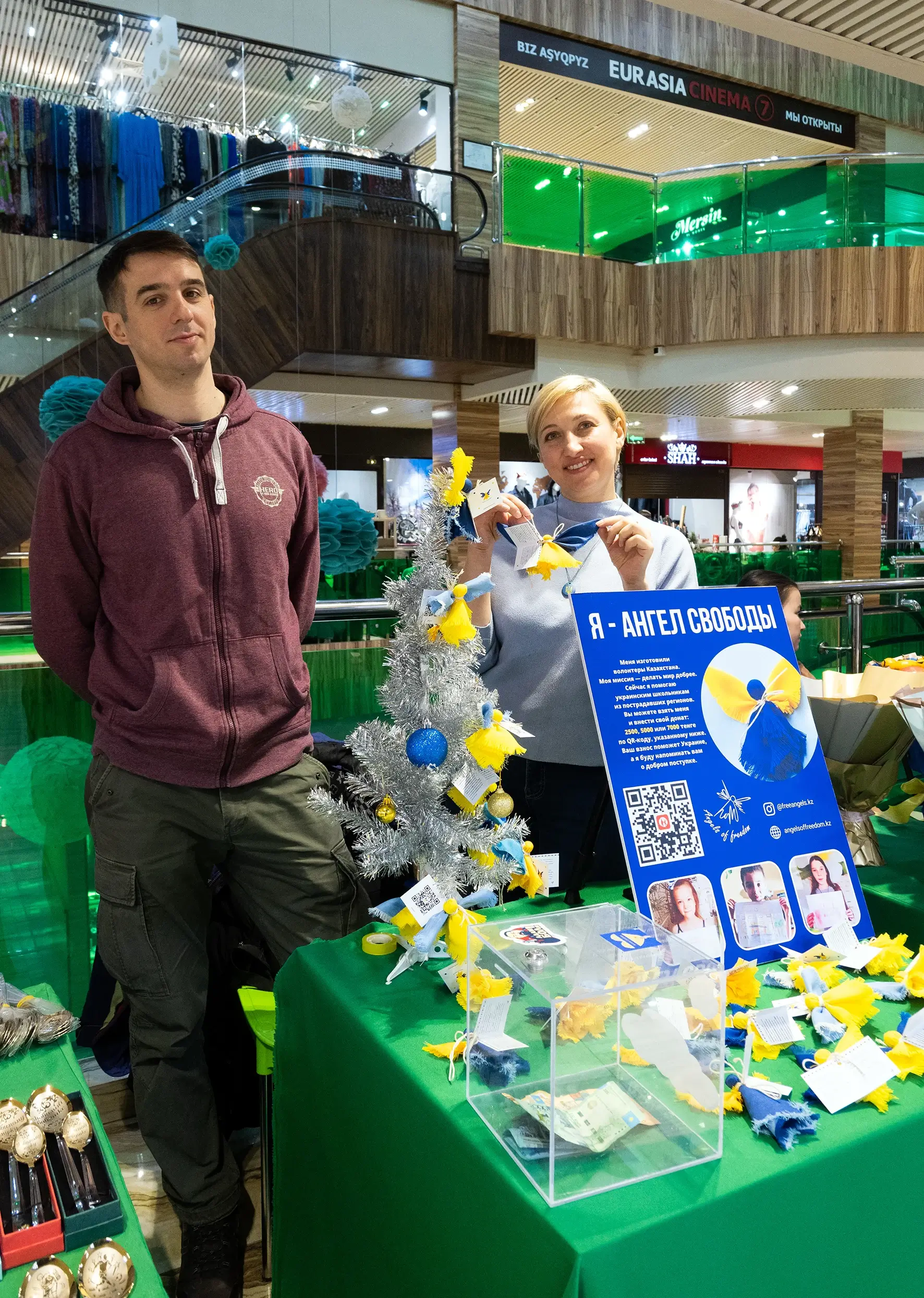
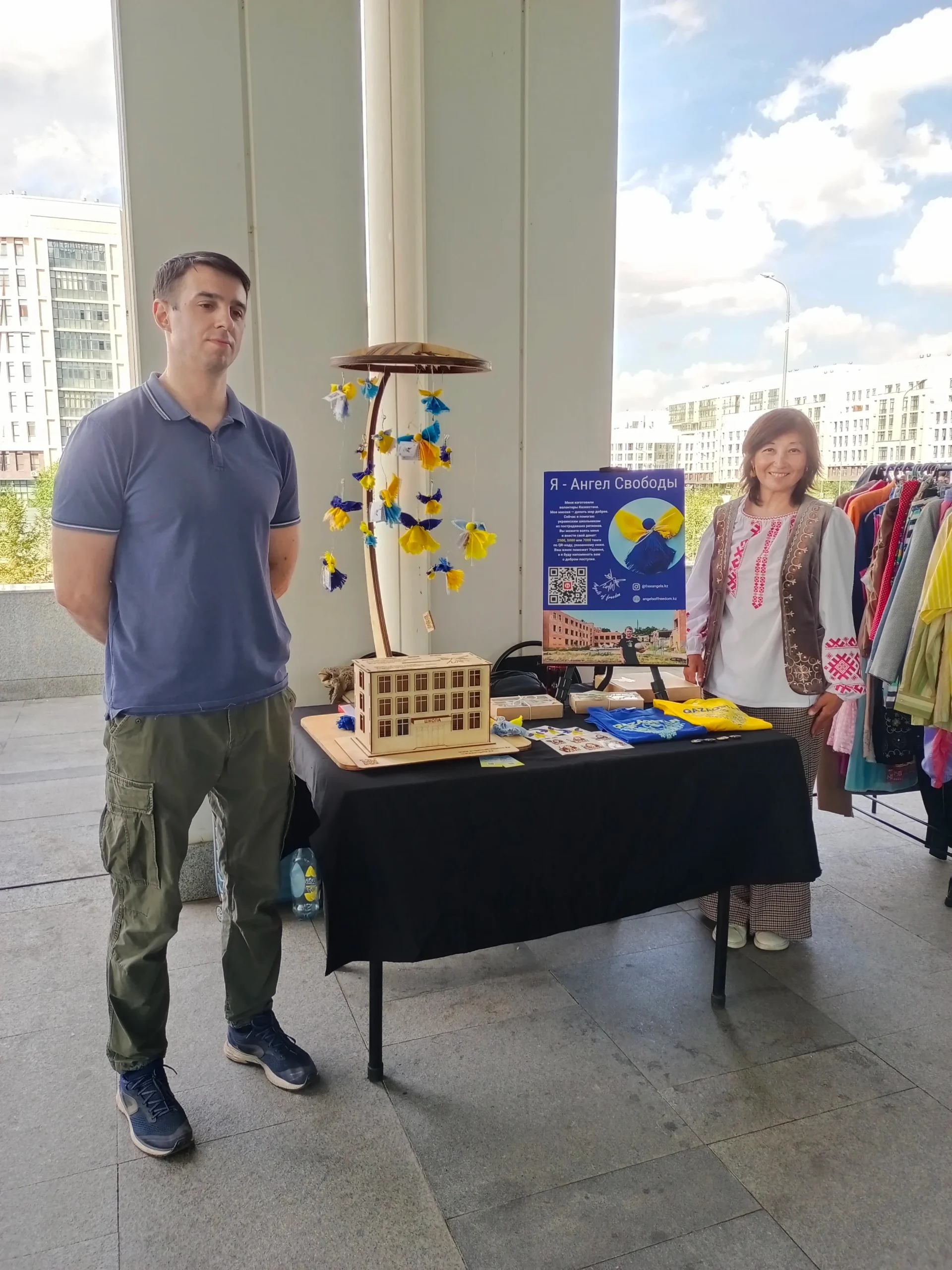
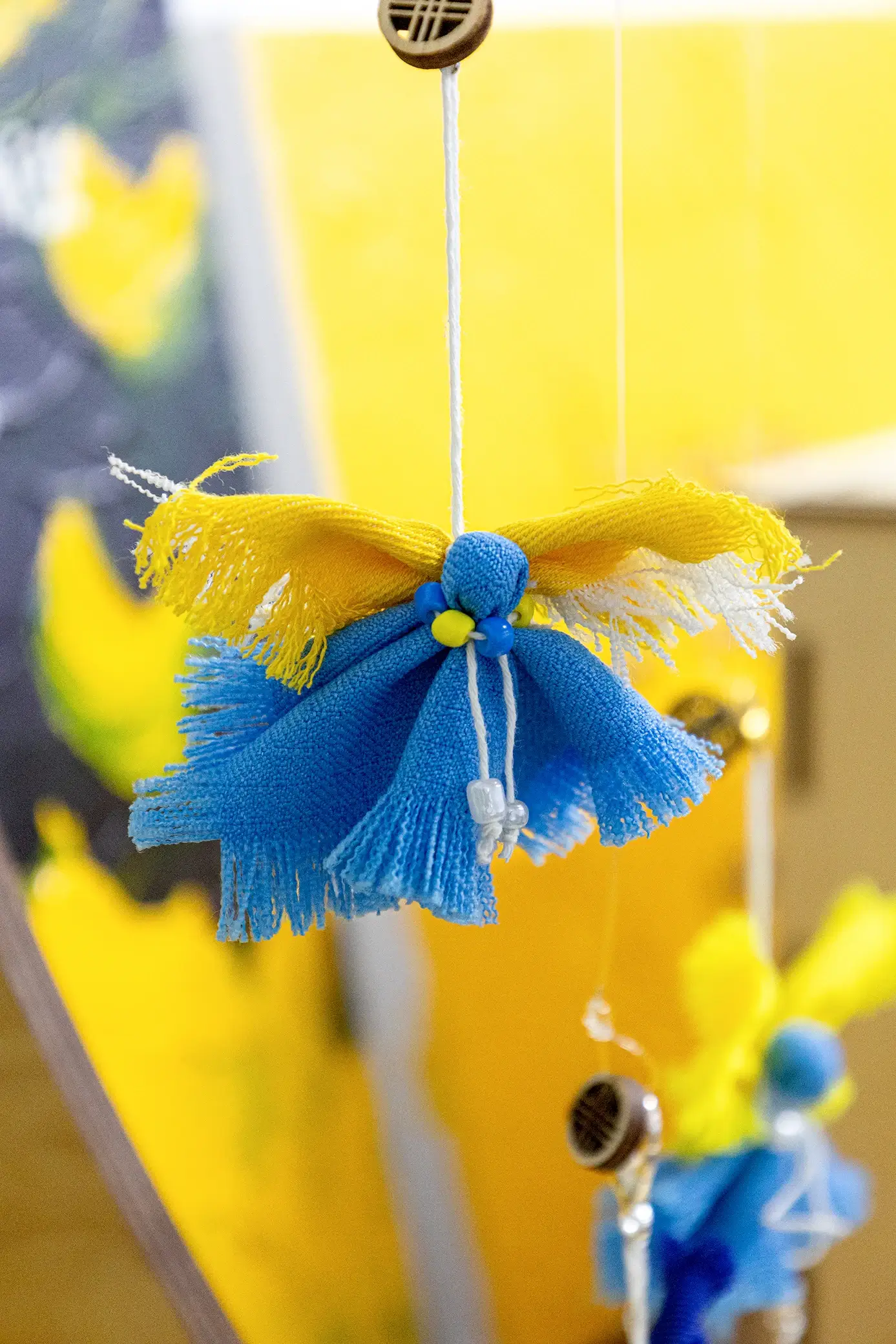
— What is the “Angels of Freedom” project for you?
Viacheslav: An opportunity to preserve myself as a human being.
Kristina: An opportunity to help. We are human beings. And humans must help each other.
— Do you plan to continue to participate in the project?
Viacheslav: Yes, we will help as much as we can.
— Do you have enough time for volunteering?
Viacheslav: Not very much. Because of the work [takes a lot of time]. Christina works 12 hours a day, I work a little less, but still, when you get home, you have no energy left for anything. And then there are some household chores. That’s why it’s harder with the tolokas. Fairs are easier, because they’re on weekends. And I manage to find time for them.
Kristina: There is not enough time. I even joke that nowhere have I had so little free time as in Kazakhstan. Here, for some reason, every minute is busy. But despite the lack of time, it keeps us going and helps us not to give up.
— Please continue the phrase “‘Angels of Freedom’ is…”
Viacheslav: I guess it’s a symbol of freedom, of the struggle for independence. But maybe I’m going too deep (laughs).
Kristina: It’s a good thing that everyone can do now. Here and now.
